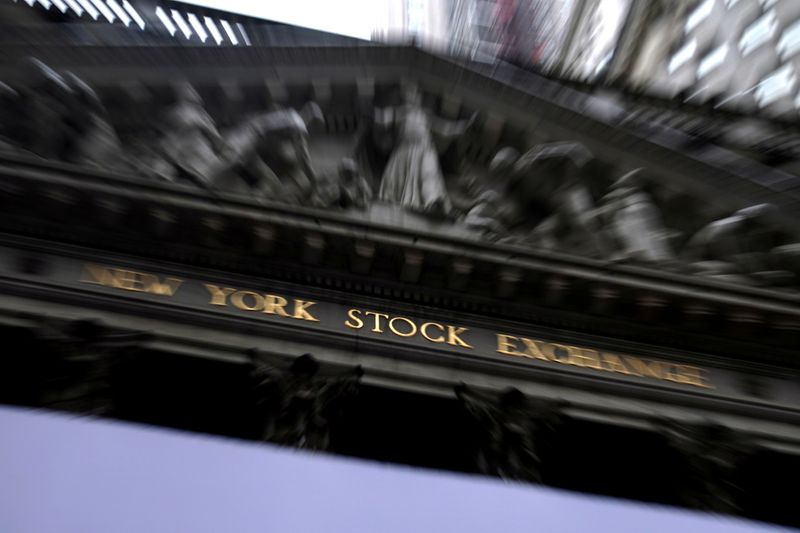By Geoffrey Smith
Investing.com -- The bipartisan stiimulus bill slims down to get through the eye of a Congressional needle; the pound and U.K. assets take off as talks on a post-Brexit trade deal are extended; AstraZeneca (NASDAQ:AZN) falls 5% after agreeing to buy Alexion (NASDAQ:ALXN), and crude oil prices hit new highs after an explosion at a Saudi Arabian port. Here’s what you need to know in financial markets on Monday, December 14th.
1. Stimulus push enters crucial phase
The bipartisan push for a streamlined fiscal stimulus package inched forward over the weekend, with its backers reportedly preparing to break out the most contentious parts in order to allow the passage of urgent relief for small business and the unemployed.
According to various reports, the bipartisan group that crafted a $908 billion package is planning to strip out both provisions about liability protections for businesses and $160 billion in aid earmarked for state and local governments. That would allow $300 billion to be distributed in the form of $300 weekly unemployment benefits, and another $300 billion for small businesses, with the remainder allocated to healthcare providers and other entities.
The latest developments come as the number of people hospitalized by the virus hit a new record of over 109,000 at the weekend. Figures for new cases and deaths were also up from the previous Sunday, although the nationwide infection curve is showing some signs of flattening again.
2. U.K. assets rebound as Brexit talks revive
The pound rebounded after the U.K. and European Union agreed to extend their negotiations on a post-Brexit free trade agreement yet again, after missing the latest self-imposed deadline on Sunday.
By 6:30 AM ET (1130 GMT), sterling was up 1.5% against the dollar at $1.3428 and up 1.2% against the euro at 1.1049. The FTSE 100 was up 0.4% and the more domestic-focused FTSE 250 up 1.4%, while U.K. government bond yields rose on a slight move back to a more risk-on posture.
The U.K. economy meanwhile continues to struggle with a still-rampant coronavirus. The capital London is set to be moved into the most restrictive of the government’s tiers for business and social gatherings, further depressing retail sales during the most intense period of the year.
Elsewhere in Europe, German federal and state governments agreed to close all non-essential businesses from Wednesday through January 10th, after their more relaxed approach to the second wave failed to bring down the infection numbers.
3. Stocks set to open higher on stimulus hopes
U.S. stock markets are poised to open higher later, on renewed hopes that some form of stimulus bill will pass through Congress before the end of the week, when the government’s spending authority is set to expire.
By 6:30 AM ET, Dow Jones futures were up 244 points, or 0.8%, while S&P 500 futures were up 0.7% and Nasdaq futures were up 0.5%. Cash markets had had a mixed day on Friday, with the S&P and Nasdaq both ending down.
Stocks in focus later are likely to include Pfizer (NYSE:PFE) and BioNTech, whose vaccine is set to begin distribution later Monday after winning emergency FDA authorization. Videogames publisher Electronic Arts (NASDAQ:EA) is also well bid in premarket, up 2.3% after having an offer for U.K.-based games publisher Codemasters accepted. Apple (NASDAQ:AAPL) may also attract attention after violent scenes at a factory owned by one of its contract manufacturers in India, where workers were protesting low wages and poor conditions.
4. AstraZeneca moves on Alexion
AstraZeneca agreed to buy Alexion, a specialist in drugs treating rare blood disorders, in a cash and stock deal worth $39 billion, the biggest deal in life sciences this year.
Astra’s share price fell some 5% in London on Monday morning, on fears that the price – which already offers a 43% premium to Alexion’s average price over the last month – may end up being even higher if a rival bidder emerges.
The deal may assuage worries about future patent cliff effects at Alexion, which relies overwhelmingly on two drugs, Soliris and Ultomiris, for its cash flows. AstraZeneca said the deal would raise earnings per share by 10% over the next three years, “materially” improving its ability to pay a higher dividend, as promised.
5. Oil higher on Saudi blast; OPEC report eyed
The Organization of Petroleum Exporting Countries will release its monthly report on the world oil market as crude oil futures consolidate above $50 a barrel for the first time since the pandemic erupted.
By 6:30 AM, Brent crude futures were up 1.3% at $50.64 a barrel, while U.S. crude futures were up 1.3% at $47.17 a barrel.
Geopolitical concerns were partly behind the strong tone. Overnight, a tanker unloading at the Saudi Arabian port of Jeddah was struck by an explosion from an as-yet unidentified source, the latest in a series of attacks on Saudi installations.
